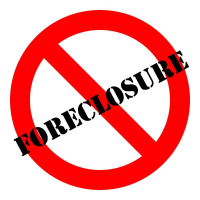Banks Threaten to Punish Cities that Use Eminent Domain to Help Underwater Homeowners

Roughly half the homeowners in the Bay Area city of Richmond are underwater on their mortgages, but city officials have come up with a plan to float them to safety, much to the consternation of banks and other moneyed interests.
The city is strongly considering using the power of eminent domain to seize the homes, which are worth less than the amount owed on the mortgage, and sell them back to the owners at fair market prices. Richmond, a poor city by most measurements, has not benefited much by the recent surge in housing prices and many of the homeowners owe three or four times as much as the home is worth, according to The New York Times.
It would be the first city in the nation to use eminent domain in this fashion. But they certainly aren’t the only city that would benefit immensely from the strategy. A lot of cities with low-income minority populations were sold a ton of predatory loans that shouldn’t have been offered, and the Times says at least two dozen are actively considering the move.
Banks—which make money by selling the homes to lenders in the secondary market, who then make money by foreclosing on the homes and reselling them—have promised to block the city with lawsuits. They promise an end to lending in the city if it persists in its plan.
On July 29, the city, according to Carolyn Said of the San Francisco Chronicle, “sent letters to 32 banks and other mortgage holders offering to buy 624 underwater mortgages at discounts to the homes’ current value. If the offers are spurned, the letter said Richmond may use the power of eminent domain to condemn the mortgages and seize them, paying court-determined fair market value.”
The current market value of the 624 homes is about $177 million, but the face value of their mortgages is $242 million. Richmond has given the loan holders until August 14 to sell the homes.
As explained by Shaila Dewan of The New York Times:
“In a hypothetical example, a home mortgaged for $400,000 is now worth $200,000. The city plans to buy the loan for $160,000, or about 80 percent of the value of the home, a discount that factors in the risk of default. Then, the city would write down the debt to $190,000 and allow the homeowner to refinance at the new amount, probably through a government program.”
The city and investors would take $30,000 and use it to for expenses and a small profit, while the homeowner ends up with $10,000 in equity.
The banks and secondary lenders would lose a cash cow that relies on the suffering of homeowners. At stake are more than just the primary mortgages. There are $450 billion in second liens and equity loans on bank books that could be affected. The lenders have called the eminent domain tactic illegal and unconstitutional, and an array of heavy hitters, including the Securities Industry and Financial Markets Association, the American Bankers Association and the National Association of Realtors, have lined up in opposition.
Besides threatening court action, they are seeking legislation at the state and federal level to snuff out the nascent movement, and revving up advertising campaigns to argue their case.
However, as David Brodwin of U.S. News and World Report put it, “it's hard to see why bailing out homeowners with a program of this sort is any less an affront to the principles of capitalism than bailing out banks that made bad investments in mortgage backed derivatives.”
-Ken Broder
To Learn More:
Richmond's Pioneering Eminent-Domain Threat (by Carolyn Said, San Francisco Chronicle)
A City Invokes Seizure Laws to Save Homes (by Shaila Dewan, New York Times)
California City Seizes Homes to Save Them (by Ilyce Glink, CBS Money Watch)
One City's Bold Plan to Prevent Foreclosures (by David Brodwin, U.S. News and World Report)
- Top Stories
- Unusual News
- Where is the Money Going?
- Controversies
- U.S. and the World
- Appointments and Resignations
- Latest News
- Trump to Stop Deportations If…
- Trump Denounces World Series
- What If China Invaded the United States?
- Donald Trump Has a Mental Health Problem and It Has a Name
- Trump Goes on Renaming Frenzy






Comments